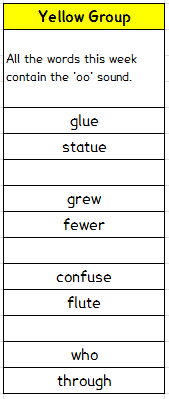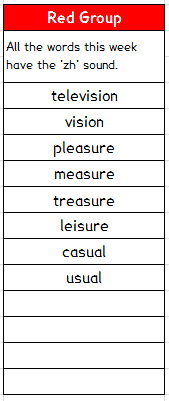13 May 2016
This week’s spellings are all common exception words. These are words that Year 3 children are expected to know. Lower down school they are often called tricky words because they don’t always follow expected phonetic rules. For example the ‘ar’ in forward makes an ‘uh’ sound.
- forward
- fruit
- grammar
- group
- guide
- heard
- heart
- height
- history
We’ve learnt some of these words before but they are still cropping up as errors in class.
13 May 2016
This week’s spellings are to practise changing …ble to …bly. Note how each word initially ends in ‘e’ but this is removed when the ‘y’ is added.
- possible, possibly,
- impossible
- horrible, horribly,
- terrible, terribly,
- visible, visibly,
- invisible
- incredible, incredibly,
- sensible, sensibly
These words will be tested on Friday 20 May but, don’t forget, the point of learning these spellings is to spell them correctly – not to do well in a test!
The words have now been added to Spellodrome so there are plenty of different ways we can practise our spellings.
06 May 2016
This week’s spellings are all homophones. Homophones are two or more words that sound the same but are spelt differently and mean different things. For example: fair (a place with rides and games) and fare (the cost of public transport).
- grown / groan
- eight / ate
- woman / women
- heard / herd
Your child also needs to find their own pair (not pear!) of homophones which they will be tested on.
06 May 2016



06 May 2016
This week’s spellings mainly focus on words with the ‘erred‘ spelling pattern with some other odd double ups included. Ten of these spellings will be tested on Friday 13 May.
- referred, reference, referee
- preferred, preference, preferring
- transferred, transferring, transference
- interrupt, interrupting, interrupted
- necessary, unnecessary
- assistance, assistant, assisted, assisting
Don’t forget: it’s really important to learn what these spellings mean, how to use them in a sentence and be able to spell them beyond a test.
29 April 2016



29 April 2016
This week’s spellings all have the ‘-ou’ digraph. These spellings all have ‘-ou’ making an ‘uh’ sound (as in touch and country) or ‘-ough’ making an ‘uff’ sound (as in enough).
young
touch
double
trouble
country
tough
rough
enough
cough
fought
These spellings will be tested next Friday. Why not go on spellodrome to practise your spellings?
29 April 2016
This week’s spellings focus on the double up rule and will be tested on Friday 6 May.
- recommend
- immediately
- community
- communicate
- excellent
- embarrass
- opposite
- accompany
- correspond
- aggressive
It’s important to practise spellings regularly so that they are learnt and not just remembered for a week in order to score well in a test. We’ve created lots of different ways to practise our spellings in class that can be done at home and, don’t forget, we now have Spellodrome to use at home. Any feedback on this resource would be greatly appreciated.
22 March 2016
This week’s spellings end in ‘-sure’ and ‘-ture’.
measure
treasure
pleasure
enclosure
creature
furniture
picture
nature
adventure
Your child has nine spellings to learn and must find their own tenth spelling that ends in either ‘-sure’ or ‘-ture’. They will be tested on seven of these spellings and their own word next Friday.
22 April 2016


